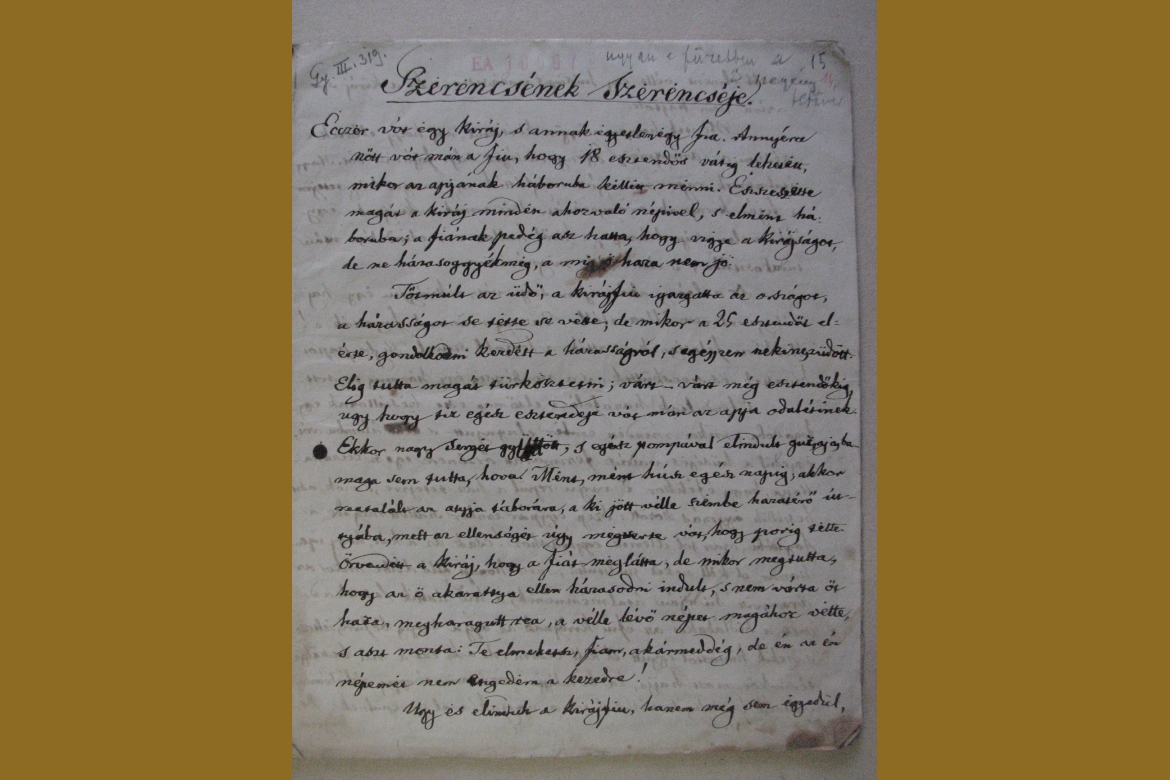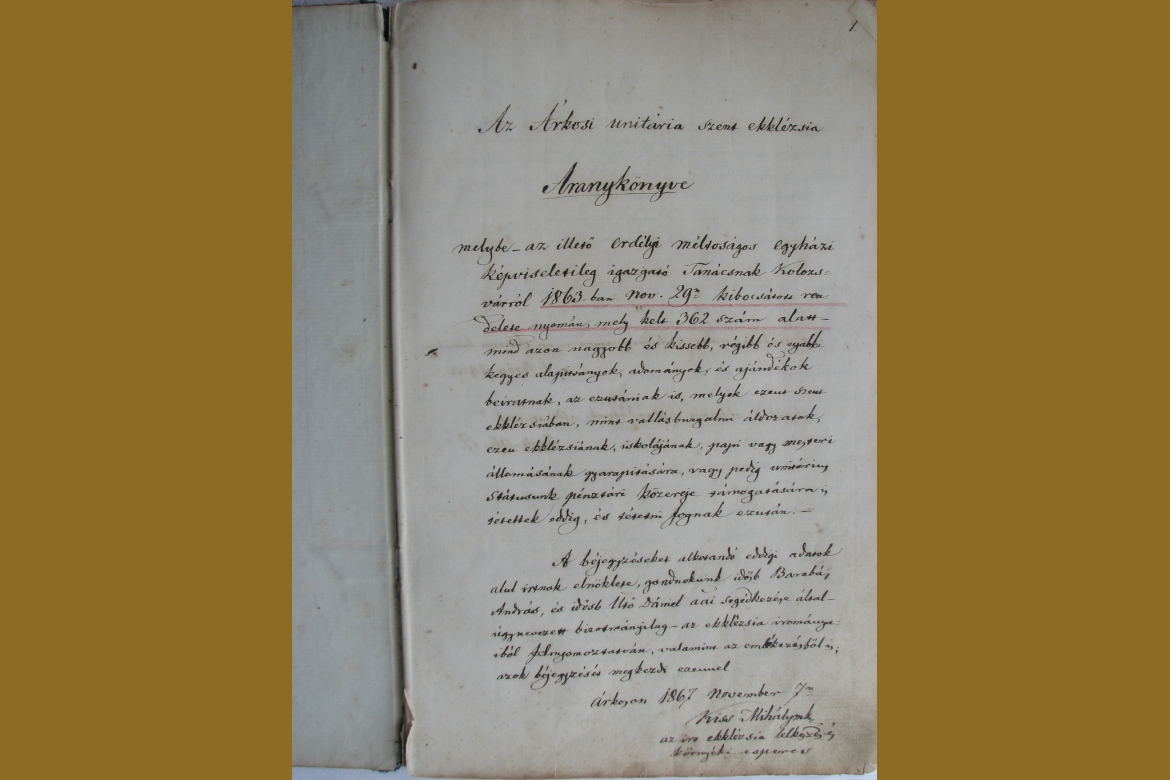- Title of the project: Collecting folk poetry as a social phenomenon: The roles of Mihály Kiss, one of the prominent collectors of Wild Roses, and the socio-historical context of his work
- Duration of the project: September 1, 2023 – August 31, 2026
- Principal investigator: Anna Szakál, Department of Folklore Studies, Institute of Ethnology, HUN-REN Research Centre for the Humanities
- Project type: János Bolyai Research Scholarship
- Funding organization: Hungarian Academy of Sciences
- Project number: BO 00806/23/1
The research focuses on the context in which collection of folk poetry in Transylvania started, what intellectual networks existed, what other objectives were linked together that were considered progressive at the time, why someone chose to collect folk poetry, how much of a truly progressive activity this was among intellectuals, and what concepts of folk poetry coexisted.

The present research project seeks to answer all these questions with regard to the most canonical collecting network of folk poetry of the mid-19th century in Transylvania, the circle of collectors of Vadrózsák [Wild Roses]. For this purpose, it is necessary to explore the documents related to the person and activities of Mihály Kiss, Unitarian pastor and dean of Árkos. He can be considered a key figure in the network of collectors connected to the folk poetry collection Vadrózsák [Wild Roses] because from the 1840s onwards, as a close friend of János Kriza, he was involved in collecting folk poetry, collected an outstanding amount of folklore and linguistic texts, and, according to the sources discovered to date, he was probably the only colleague of Kriza’s who thought about folk poetry texts and collecting and publication issues the same way Kriza did. Due to a lack of sources, it is currently only possible to write about the leader of this intellectual network, Kriza himself, through an exploration of Mihály Kiss.
The case studies in this research, which is essentially based on folkloristics and literary history, provide an insight into the everyday life of the collectors (typically Unitarian pastors and teachers) from a micro-historical perspective. Based on suitable groups of sources (e.g., extant documents of conflicts and disputes), we can also create thick descriptions.
By the close of the research, the early period of collecting folk poetry in Transylvania and the intellectual groups involved in it will have been explored in detail. The book that focuses on Mihály Kiss will reveal the folkloristic ideas of the 1850s–1860s (about genres, collecting, links with other disciplines, cooperation, etc.), allowing us to get a clearer picture of what it meant to be a collector in Transylvania in the mid-19th century. Moreover, it also provides a way to interpret the everyday life of the Unitarian lower clergy in Transylvania, and the roles of bishop and dean as elements of networking.



